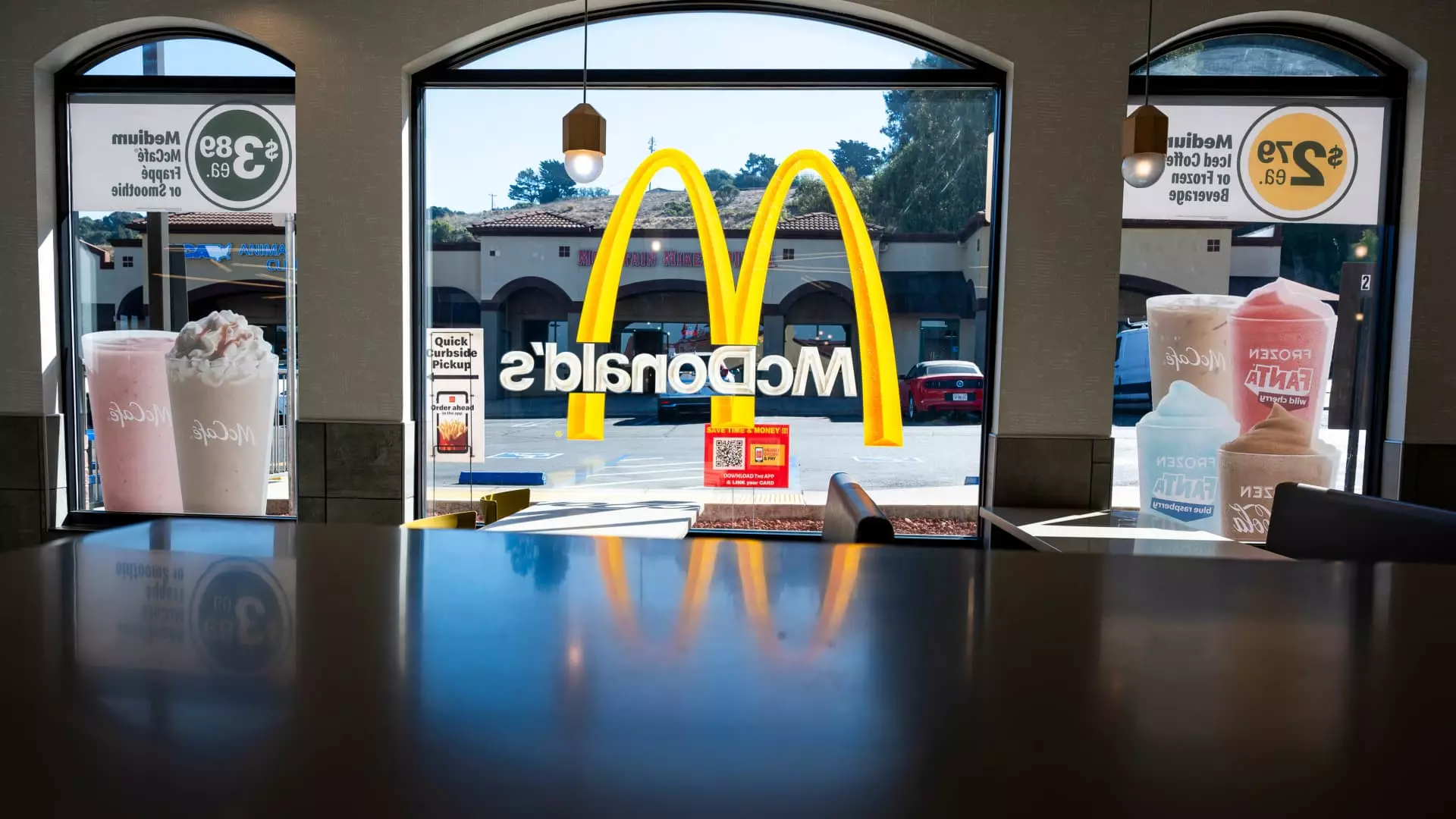The restaurant sector is navigating through a tumultuous phase characterized by numerous challenges and a fluctuating economic landscape. Industry executives are cautiously optimistic as they look ahead to 2025, with many expressing eagerness to turn the page on the difficulties faced in 2024. The remarks of Kate Jaspon, CFO of Inspire Brands, at a recent industry conference underscore this sentiment; she articulated a shared desire for significant improvement in the sector by 2025.
The figures underline the severity of the situation in the restaurant industry. Compared to last year, bankruptcy filings have surged by over 50% in 2024, painting a dire picture of the market’s health. Black Box Intelligence reports a consistent year-over-year decline in traffic to established restaurants throughout 2024, a trend that speaks volumes about consumer behavior and market dynamics. Large chains have not been immune, experiencing notable same-store sales declines that have disappointed investors and sent ripples of concern throughout the industry.
Furthermore, heightened operating costs and shifts in consumer spending habits have compelled many establishments to rethink their strategies. Major chains like McDonald’s and Starbucks have reported lackluster sales figures, revealing the uphill battle they face to reignite growth. The atmosphere results in a sense of urgency within the industry’s leadership as they seek to implement measures that could restore consumer confidence and spur spending.
However, amidst this challenging backdrop, flickers of hope are emerging. The month of October marked a turning point for fast-food restaurants, as traffic rose by 2.8% when compared to data from the previous year, a development indicating a possible recovery in consumer appetite. Restaurants like Burger King have reported improved same-store sales, suggesting that selective positive trends are starting to surface.
The fall in interest rates is another factor igniting optimism in the sector. With the Federal Reserve’s second consecutive rate cut occurring in early November, financing costs are decreasing, making it easier for restaurants to expand and upgrade their operations. While some chains had previously maintained growth despite high interest rates, the current environment provides a more favorable backdrop for strategic investments and location developments.
The IPO Market and Investment Climate
The potential thawing of the IPO market presents an intriguing prospect for the industry. Piper Sandler’s Damon Chandik highlighted the desire among restaurateurs to prepare for public offerings, although the bar is set high due to the pressure on traffic across the industry. Interest in IPOs remains cautious, especially following Mediterranean chain Cava’s remarkable performance post-IPO. Although interest remains in companies like Inspire Brands, parent to notable names such as Dunkin’ and Arby’s, market conditions have yet to present an optimal window for broader participation.
Companies like Panera Bread, which filed for an IPO nearly a year ago, have yet to capitalize on their readiness as the major restaurant IPO visibility seems stifled. The longing for robust market conditions continues to linger within the sector, with industry observers keenly watching any developments that could signal a shift in sentiment.
The Road Ahead: Balancing Optimism with Reality
Although the industry showcases signs of recovery, deep-rooted challenges remain. Companies like Portillo’s, which has faced declining same-store sales, highlight the intensity of competition and the lingering threat of bankruptcy. Emphasizing value-oriented strategies is a significant tactic adopted by chains to attract cost-conscious consumers, with major players like McDonald’s introducing extensive value menus as a means to bolster patronage.
The burgeoning “value wars” risk pressuring profit margins further, as chains strive to outmaneuver rivals amidst an uncertain economic environment. While some experts forecast a recession may be averted in the near term, the psychological burden imposed by years of escalating prices may continue to temper consumer enthusiasm.
The restaurant industry stands at a critical juncture. The optimism brewing for 2025 must be tempered with a realistic assessment of the existing challenges. As operators seek to recalibrate their businesses and navigate the complexities of a constantly shifting market, the experiences of 2024 will undoubtedly inform strategies in the years to come. Recognizing the blend of adversity and opportunity is essential for crafting paths forward in an ever-evolving sector.

